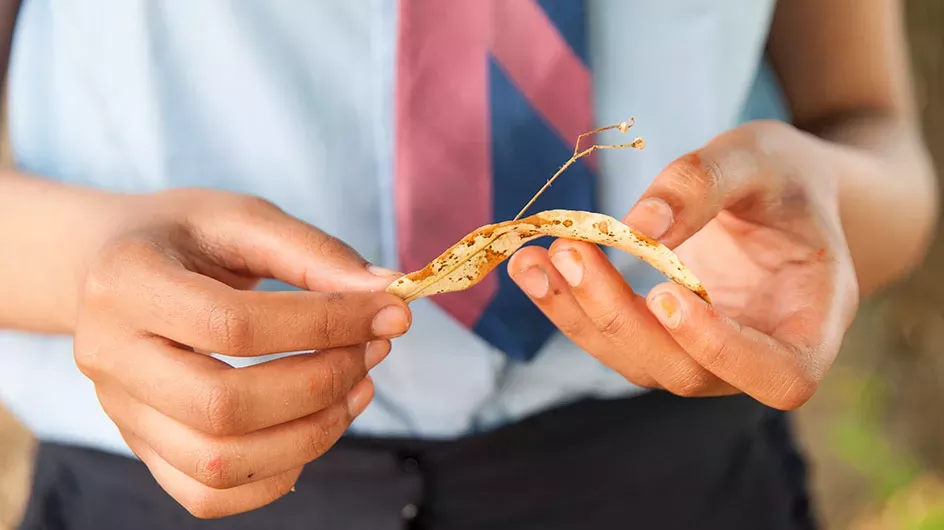KS3 Plant adaptations and photosynthesis
Journey across the globe from the steamy tropical rainforest to the arid desert. Explore the physiological adaptations which allow plants to survive in a variety of environments.

Level
Key Stage 3
Duration
90 minutes
Allocated space
15 pupils per group
Overview
How are plants adapted to survive in different conditions? Pupils explore this question through inquiry based learning, immersing themselves in the variety of life in our gardens and linking adaptations to the essential life process of photosynthesis.
Please note, elements of this session will take place in one of our glasshouses.
Learning outcomes
Pupils will be able to:
- Describe the process of photosynthesis and how plants derive their energy
- Understand the role of stomata in photosynthesis
- Identify and describe several plant adaptations to the environment
We will ensure the learning outcomes focus on the year group taking part.
Keywords:
Photosynthesis, water, carbon dioxide, glucose, oxygen, sunlight, chlorophyll, chloroplast, stomata, nutrients, adaptations
Curriculum links
Science – Biology
Material cycles and energy – photosynthesis
- The reactants in, and products of, photosynthesis, and a word summary for photosynthesis.
- The dependence of almost all life on Earth on the ability of photosynthetic organisms, such as plants and algae, to use sunlight in photosynthesis to build organic molecules. These molecules are an essential energy store used to maintain levels of oxygen and carbon dioxide in the atmosphere.
- The adaptations of leaves for photosynthesis.
Gas exchange systems
- The role of leaf stomata in gas exchange in plants.
Genetics and evolution – Inheritance, chromosomes, DNA and genes
- The variation between species and between individuals of the same species means some organisms compete more successfully, which can drive natural selection.
- Changes in the environment may leave individuals within a species, and some entire species, less well adapted to compete successfully and reproduce, which in turn may lead to extinction.
Working scientifically
- Ask questions and develop a line of enquiry based on observations of the real world, alongside prior knowledge and experience.
- Make predictions using scientific knowledge and understanding;
- Make and record observations and measurements using a range of methods for different investigations.
Geography
- Extend their locational knowledge.
